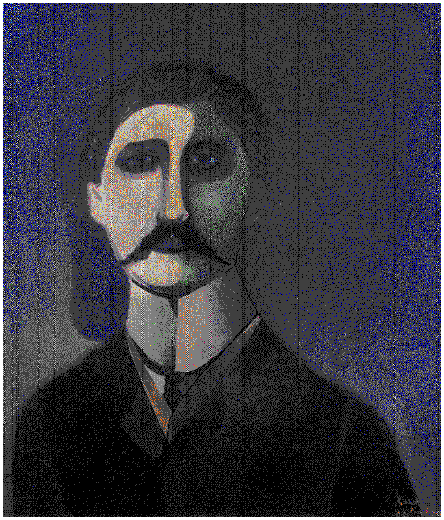
When I retired from the regular faculty, some observed that I had been rather on the irregular side all along. But Emeritus status confers special rewards, the most important of which is free parking anywhere on campus, something perhaps even more precious than a Nobel. Had I known about the free parking privilege when I arrived in Seattle some aeons ago, I would have retired immediately upon my appointment.
Back in those simpler, pre-historic times, long before telephones became pocket-sized and squids became calamari, life here was colourful. Seattle was the most remote city in the continental USA, and our east coast relatives all thought we had moved to Alaska. The houseboats of Lake Union, equipped with plumbing that emptied directly into the lake, were so cheap that an assistant professor like me could easily buy one for cash. I rode an old BMW R-50 motorcycle in those days, which made me feel rather dashing. Life seemed new, exciting, and on the threshold of great things.
Louis Pasteur had just shown that germs are nothing but little people, so biological research was not all that different from a game of seven-card stud poker. I was the youngest member of a new academic department, and was widely regarded as "promising." I did a few promising bits of research, continued to be promising for years, and then for more years, and then one day discovered that I had progressed from promising to over-the-hill. I seem to have missed the intermediate stage, if there was one. So this, I began to realize, is what the musicologist Nicolas Slonimsky meant when he described himself as "a failed prodigy."
In the meantime, my department became steadily more high-powered, while I continued to do low-powered studies in an eccentric sub-field. Finally, I started using recombinant DNA methods, and we constructed new life-forms and monsters in the lab, just like everybody else. One day, early in what I eventually noticed was the 21st century, the monster lying on my lab bench twitched into life and asked me for a cigarette. "Nobody smokes any more," I told it, "It's bad for you." "Well then, just light my nose on fire, will you?" the creature responded, and added: "Incidentally, isn't it about time you retired?" I reflected on this idea, while the monster pulled the electrodes out of its head and went shambling off to look for a seminar to disrupt. The next year I took its advice.
Seattle has changed a lot during my time here. When I first arrived, downtown was focused on the County Jail and Pioneer Square, which housed a mixture of alcoholics and derelicts together with, during the summer months, a sprinkling of tourists. North of Pioneer Square, there was nothing but a long avenue filled with pawn shops, followed by the produce stands and fish markets of the public market. The sole cultural institutions were the Lusty Lady strip joint on 1st Avenue, the Elephant Car Wash, and the Embassy Theater, which specialized in Japanese sci-fi movies like "Mothra Versus Godzilla." There were all of two good restaurants in town, one Swedish and one French, until the French one was closed down by order of the Board of Health. The population density in those days was so low that we thought nothing of zipping across Lake Washington to the eastern suburbs to go to dinner, requiring no more than a 20-25 minute drive through light traffic.
But today, Seattle has turned into what they call a "world class" city: the downtown is filled with featureless glass and steel skyscrapers, the squids are calamari, and packs of 27-year-old software millionaires roam the streets, searching for new club or culinary experiences. The car traffic makes Manhattan look rural. The last time I tried to get on the bridge across Lake Washington, the traffic was so gridlocked that drivers hired street-people to sit in their cars while they walked home to take a shower. The Embassy Theater is long gone, but the Elephant Car Wash and the public market are still in place. The latter remains an oasis of fresh produce and fish, now surrounded by endless knick-knack stalls where one can buy napkin rings made of recycled hemp and scrimshaw toilet-paper-holders. The craftpersons who run the stalls are the grandchildren of hippies who didn't quite make it from California to the Elysian fields of Canada.
Downtown now boasts a cultural district which contains art galleries, an enormous concert venue, and an art museum marked, at its entrance, by a 30 foot statue of a human figure that slowly raises and lowers a hammer. It is called "Hammering Man." Four miles to the north, on the fringe of the University district, there is the Blue Moon Tavern marked, at its entrance, by a smaller statue of a human figure which slowly raises and lowers a can of beer; it is called "Hammered Man."
The dim, cool interior of the Blue Moon Tavern is a diorama of ex-graduate students, slumped unmoving over their drinks. These figures, who are almost life-like, can be roused to something approaching sentience by mentioning the distant past, when they dedicated themselves to protesting the Spanish-American War and flunking out of graduate school. The figures stir slowly and raise their drinks, rather like the Hammered Man automaton outside.
I noticed that one of them looked hauntingly familiar. It may have been its unusual size, or the marks on its head left by electrodes. "How is the Seattle scene going for you?" I asked it. "Not so good," my former monster replied. "I tried working at Microsoft, but they said I wasn't a recent enough model." "I'm sorry to hear that," I said, "but couldn't they upgrade you?" The monster shook its head ruefully. "I'm just not fast enough to be upgradeable," he said, "and by the way, have you got a cigarette?"